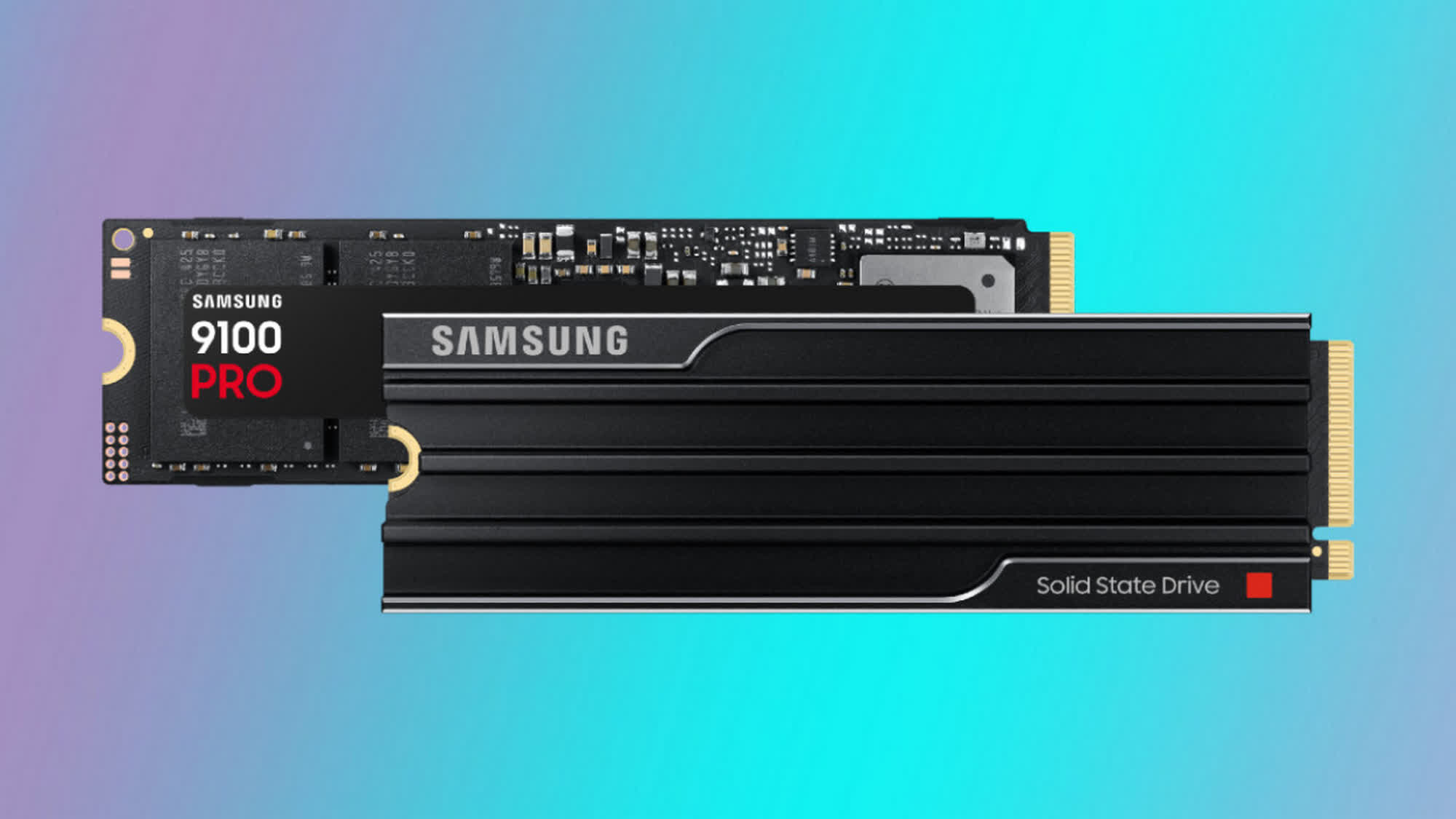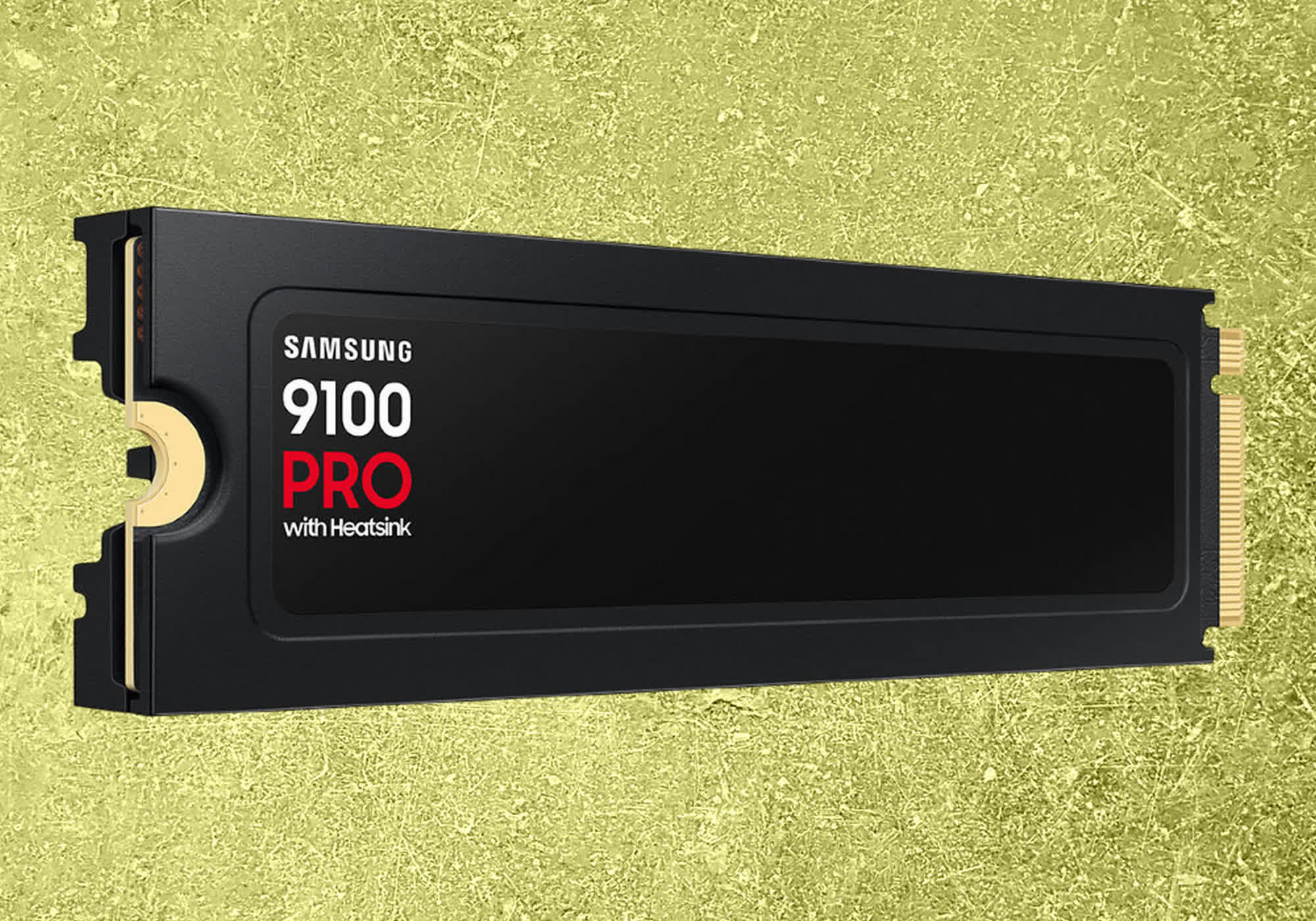What just happened? Samsung has expanded its consumer SSD lineup with the launch of the 9100 Pro series solid-state drives featuring PCIe 5.0 speeds. Built on an improved version of Samsung's TLC V8 V-NAND flash, this is the South Korean company's first "true" Gen 5 SSD, delivering blazingly fast speeds and more storage capacity than its predecessors.

Samsung claims that the 9100 Pro series delivers up to 14,800 MB/s of sequential read speeds, potentially making it the fastest consumer SSD on the market. It also achieves 13,400 MB/s of sequential write speeds, making it twice as fast as the company's existing products. The new drives reach random read/write speeds of up to 2,200K/2,600K IOPS, enabling users to access large games, files, and apps faster than ever before.
Samsung is launching the 9100 Pro in four configurations: a 1TB variant with 1GB of LPDDR4X cache, a 2TB model with 2GB of LPDDR4X cache, a 4TB model with 4GB of LPDDR4X cache, and an 8TB model with 8GB of LPDDR4X cache.

The 9100 Pro drives use an advanced 5nm controller, making them more power-efficient than Samsung's older SSDs. The company claims they deliver up to 49 percent more power efficiency compared to their predecessors. Samsung is also offering a version with an added heatsink for an additional layer of thermal control, helping it run cooler and giving it a longer lifespan.
The 9100 Pro drives are aimed at professional photo and video editors, gamers, and AI content generators. Samsung claims that the new drives will deliver "a new benchmark" for storage performance on laptops, desktops, and video game consoles, including the PS5. For peak performance, reliability, and data security, the drives will ship with the Samsung Magician Software.
The 9100 Pro SSDs will be available starting this March, but they won't be cheap. The base 1TB model is priced at $199.99, while the 2TB and 4TB models will cost $299.99 and $549.99, respectively. The 9100 Pro with Heatsink will start at $219.99 for the 1TB model, while the 2TB and 4TB variants will cost $319.99 and $569.99, respectively. Samsung didn't announce the price of the 8TB models, which will be available in the second half of 2025.